Paul Starick: Turbulent times are ahead in parliament and Cregan’s re-election bid | The State
The “dog act” is done, Labor is revelling in the Marshall Government’s humiliation and the Hills defector is full of beans. But more turbulence lies ahead, writes Paul Starick.
SA News
Don't miss out on the headlines from SA News. Followed categories will be added to My News.
The coup spearheaded by Liberal turncoat Dan Cregan is complete.
Changes to the state constitution passed on Thursday by parliament’s upper house cement the requirement for the Speaker to act as an impartial and independent umpire.
The justification for the Cregan coup, which ousted Liberal Josh Teague, was to move to an independent Speakership – modelled on the convention of the United Kingdom’s House of Commons.
This motive remains highly contested by the Liberals, given the putsch that installed Mr Cregan was backed by Labor and most crossbenchers. At the time, Liberal backbencher Adrian Pederick, who holds the neighbouring seat to Mr Cregan’s Adelaide Hills electorate of Kavel, accused him of “the biggest dog act” he’d yet seen.
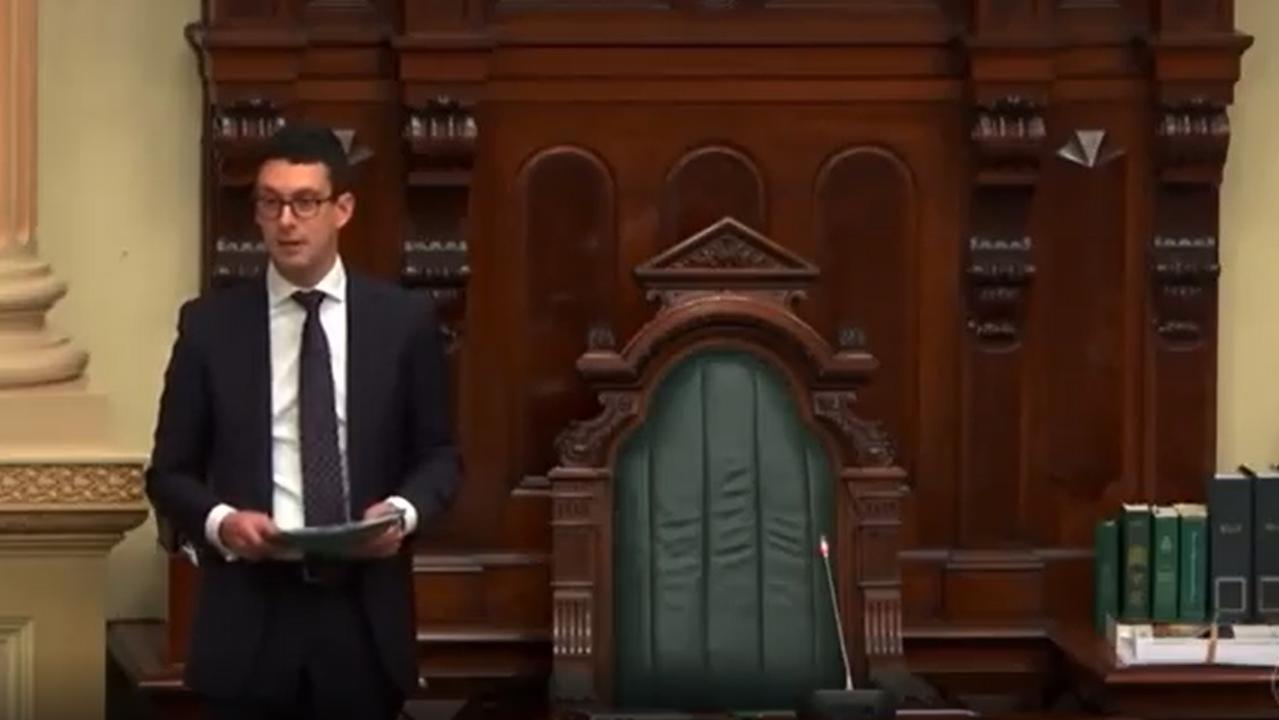
But Mr Cregan, an accomplished solicitor before entering parliament in 2018, is ruthlessly and doggedly ploughing ahead with his agenda.
His umpiring of parliament’s lower house has infuriated some of his former Liberal colleagues, who privately argue his inaction in curbing Labor taunts, interjections and other outrages directly leads to ALP people behaving like thugs.
They argue Mr Cregan is making an empty boast that nobody was kicked out of the chamber during three sitting days this week.
This antagonism towards Mr Cregan risks alienating him should his support be required to prop up the government, either in forthcoming parliamentary votes or in the event of a close election next March, should he be re-elected.
Premier Steven Marshall, however, is setting a shining example for his troops on how to deal with their former colleague. During question time, Mr Marshall is unfailingly polite and respectful to the Speaker. This has not gone unnoticed. Through intermediaries, Mr Cregan has emphasised his appreciation and respect for the Premier’s approach, along with his willingness to open talks after the election.
Labor is revelling in the humiliation heaped on the government for lacking the numbers to block Mr Cregan’s installation, along with a parliamentary inquiry into whether Deputy Premier Vickie Chapman had a conflict of interest and breached the ministerial code of conduct in rejecting an application to build a deepwater port on Kangaroo Island. At times, Labor risks lapsing into triumphalism rather than modestly focusing on the task at hand – winning next March’s election.
If there is one thing Mr Cregan cannot be accused of, though, it is applying insufficient zealousness to his Kavel re-election bid.
He has revealed himself as quite adept at the hokey populism that won national notoriety for Nick Xenophon – the former mentor of his close ally, Centre Alliance MP for Mayo, Rebekha Sharkie. Mr X would have been proud of an independent speaker eschewing a chauffeured limousine to drive his own 2010 Ford Falcon and revealing its nickname, Foster the Ford.
Similarly, Mr Cregan displayed good humour by jocularly posing with baked beans to illustrate his vow that he would accept that as pay for the Speaker’s job. Donating his $150,000 pay rise to good causes was another canny move.
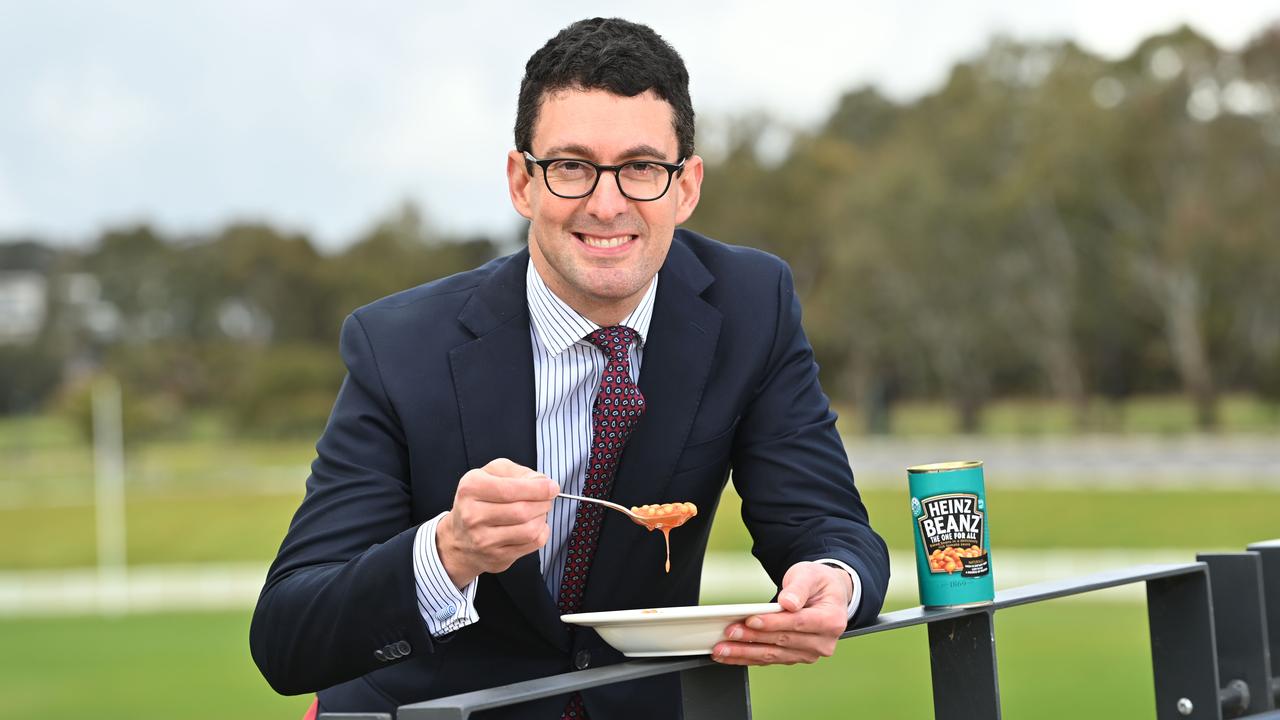
But Mr Cregan has not been afraid to deploy hard-nosed aggression – albeit delivered in measured, calm tones – to strike at his former party. On Thursday, Mr Cregan opened the Liberal sore of data harvesting allegations to sensationally question whether the party had unlawfully accessed contact details and other confidential information of his Adelaide Hills constituents, supplied to his office after the Cudlee Creek bushfire.
Pointedly, Mr Cregan warned it would “strike a blow at the very heart of our democracy” if a party or company, Parakeelia, were involved. Parakeelia is wholly owned by the Liberal Party and provides software services, particularly the extensive electoral database used by MPs.
Some Liberals will see this as a dog act, given Mr Cregan or his staff would have entered the data into the party’s database when he was a Liberal member. Like most data management agreements, the party would own that data and Mr Cregan would have agreed to the terms. But he is aggrieved about alleged push polling and his Facebook page being taken over by the party.
Mr Cregan is now moving to reform parliament, in keeping with his mission as an independent speaker. This includes the highly necessary attempt to bring the workplace into the 20th century by employing a people and culture manager for staff.
It is likely he will use new powers handed to the Speaker to extend parliamentary sittings, either later this year or, more likely, next February.
Turbulent times are ahead, both within the parliament and for Mr Cregan’s re-election bid. He is not without hope of winning Kavel, which would force the Liberals to accommodate him, rather than reject him.
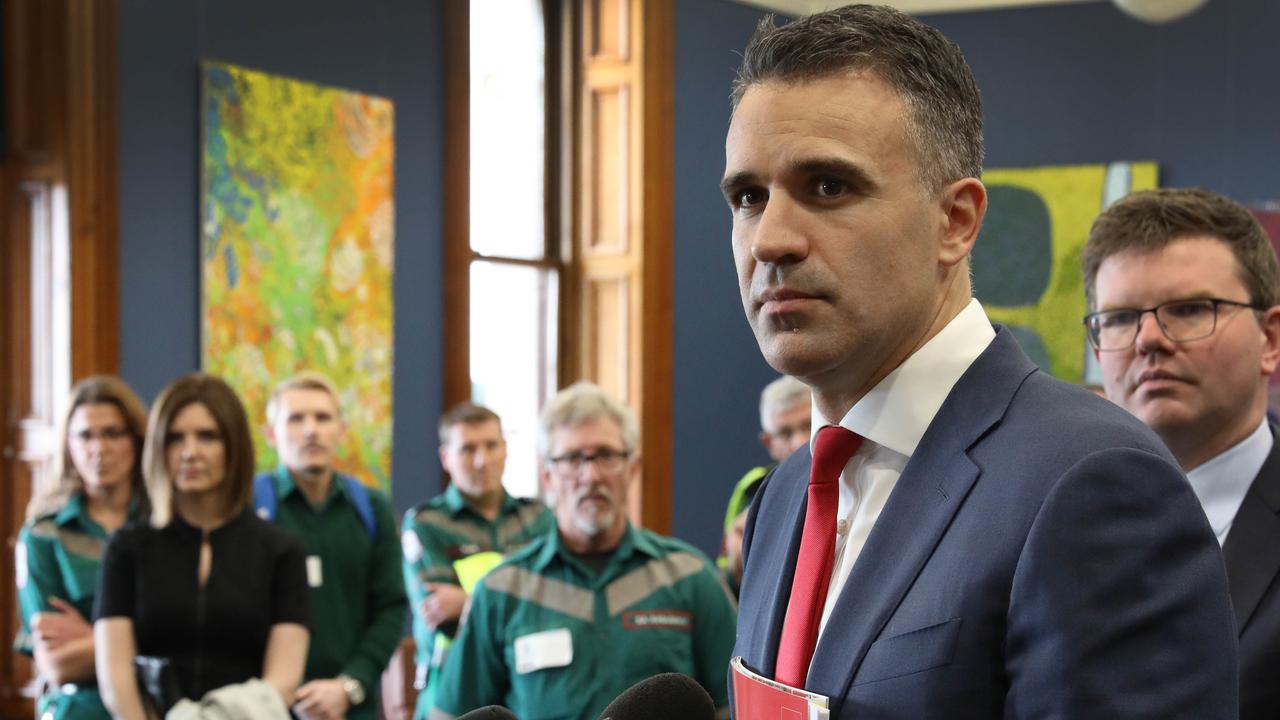
It's Mali’s big moment but is anyone listening?
By Paul Starick
Friday, October 22: The Covid-19 pandemic that has up-ended the world for almost two years is a major enemy for Opposition Leader Peter Malinauskas as he seeks to build his case as alternate Premier.
On Saturday, Mr Malinauskas will stride to a stage at the Adelaide Convention Centre to deliver one of the most important speeches of his political career at the ALP state convention. Less than five months before the next state election, he is hoping to lead Labor back into the power it held for 16 years – and out of the wilderness of opposition.
The speech is a critical juncture in the right-wing leader’s quest to modernise the ALP according to his longstanding ideology that Labor is, first and foremost, an economic party.
“The Labor Party is about jobs. Well-paid, sustainable and secure jobs. We understand that when capital and labour work with each other, great things can happen, including building a society that is fair,” he is expected to tell the state convention, echoing his comments in an Advertiser interview in May.
Education policy will be a central pillar of his economic policy, Mr Malinauskas will declare, arguing that growing living standards and prosperity depends on knowledge and skills.
This recasts Labor’s education policy from one founded upon social equity to an aspirational economic ideal traditionally more aligned to his Liberal opponents.
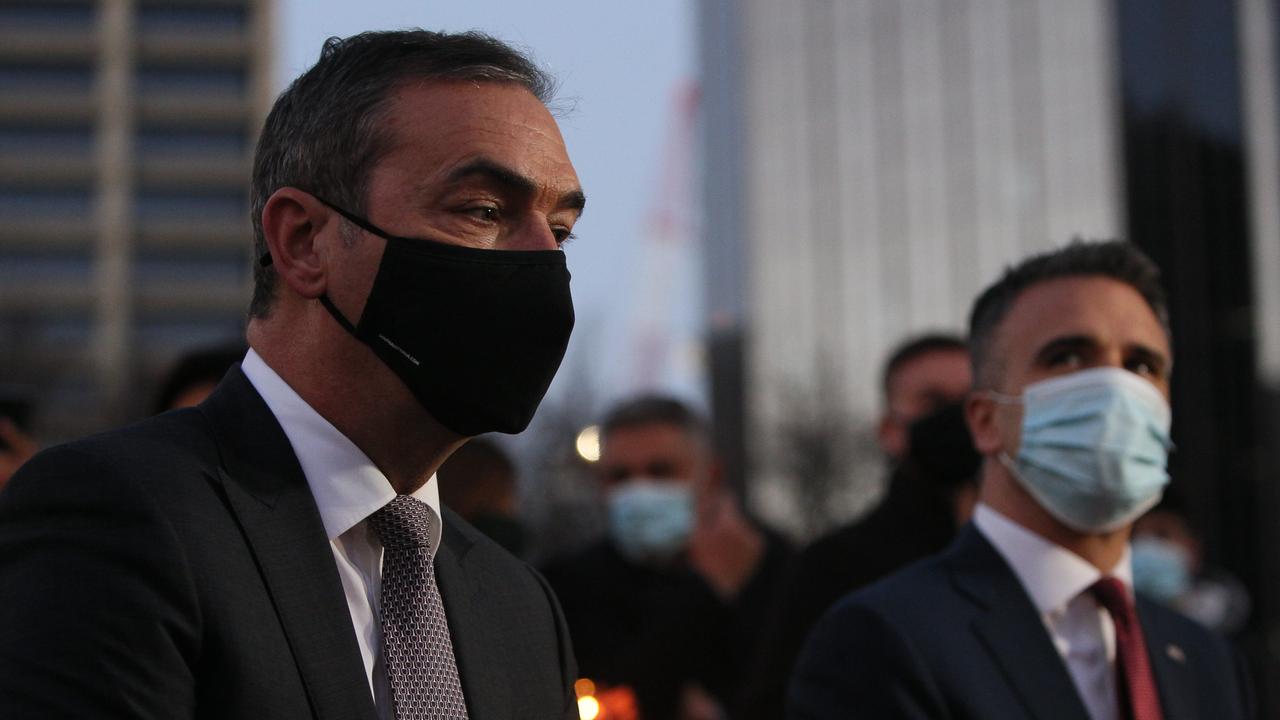
But the key question is whether voters are listening or whether Mr Malinauskas’s message is being drowned out by the public’s consuming focus on the potential impact of Covid-19 on their lives.
This is sharpening as eastern states come out of lockdown, despite hundreds of daily new cases.
Premier Steven Marshall has consistently vowed to reopen the state once double-dose vaccination rates hit 80 per cent, which is forecast for early December.
A reopening road map is expected to be released soon, effectively guaranteeing Covid-19 will continue to dominate the political agenda up until Christmas.
This leaves Mr Malinauskas with very little clear air to flick the switch from the necessarily negative and destructive politics of opposition to build a substantive case for Labor’s election through releasing a detailed policy agenda.
For some time, he has held out the state convention as the milestone for this political pivot, hoping that the clouds of Covid-19 would clear. This has triggered reasonable Liberal criticism that Labor’s policy cupboard is all-but bare and the party’s approach is focused on whining and carping.
This charge was slightly defused this week, when The Advertiser exclusively revealed Labor wanted to empower school principals to fire underperforming teachers, under a major pre-election plan designed to improve student learning.
Mr Malinauskas picked a fight with the powerful Australian Education Union, planning to break it’s hold over ALP education policy. As he correctly predicted, the AEU condemned the measure as “populist politics, not good policy”, despite it attracting significant public support.
This is a critical juncture for Mr Malinauskas and Labor. Covid-19 has swamped most of this pre-election year and this is likely to continue. South Australia has been a relative oasis, thus far, meaning there is not a substantial mood for change within the electorate.
If anything, Mr Marshall is having to convince voters of the necessity to fling open state borders before Christmas, even to fully vaccinated people from Victoria and NSW.
The Liberals continue to plot to exploit the increased spotlight on Mr Marshall and the state pride boost from the pandemic performance.
A central theme is likely to be repeated from the 2004 federal election, when the-then prime minister, John Howard, famously declared the election would be about trust. His argument then resembles Mr Malinauskas’s now, with a partisan twist.
“Who do you trust to keep the economy strong and protect family living standards? Who do you trust to keep the budget strong so that we can afford to spend more on health and education?” Mr Howard said.
More than 17 years later, the state Liberals are moving to define the campaign by contrasting Mr Marshall’s record as a successful businessman and creator of a defence and technology-based state economy with Mr Malinauskas’s as a union boss.
Liberal state director Sascha Meldrum will be borrowing from her first-hand experience of the 2004 federal campaign – she was an adviser to the-then government Senate Leader Robert Hill.
The volatile nature of the pandemic means both major parties’ plans are susceptible to unexpected change.
Covid-19 management is Mr Marshall’s strongest political weapon, which his rival faces a huge challenge to overcome.
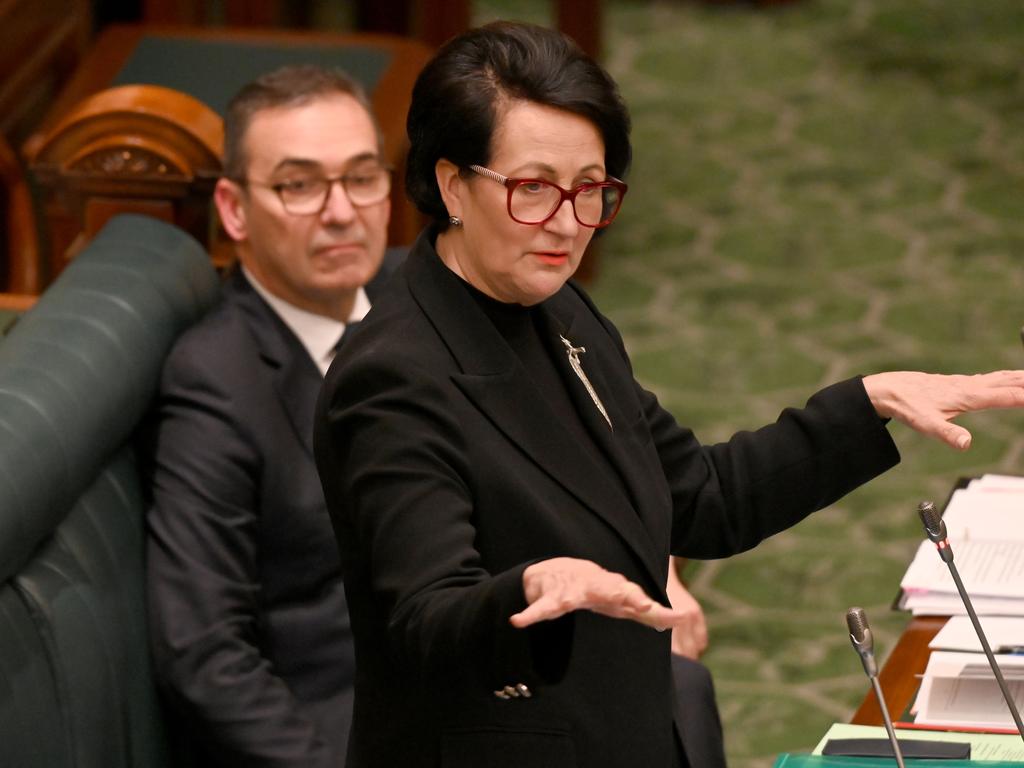
What – and who – is next in Libs’ relapse
By Paul Starick
Friday, October 15: In recent weeks, a portrait of one-term Liberal premier David Tonkin has been moved to hang in the corridors of state parliament, just outside Premier Steven Marshall’s office.
A keen student of political history, Mr Marshall has an accomplished knowledge of the state and parliament’s past, which he has generously and modestly displayed to this columnist.
Mr Marshall, therefore, cannot fail to have noticed the irony in Mr Tonkin’s portrait appearing in his corridor just as he gears up to campaign for a second term in office.
This task is far more challenging than it might first appear. If Mr Marshall wins, he will become the first state Liberal leader to win an election after serving a full term in office since 1962, when Sir Thomas Playford won a tenth consecutive term by defeating the Frank Walsh-led Labor Party.
Mr Tonkin, whose portrait has been stationed outside Mr Marshall’s office, ended the Dunstan era by winning the 1979 election. Three years later, with Australia gripped by a recession, Mr Tonkin’s Liberals were defeated by John Bannon’s Labor Party. Mr Bannon went on to become the state’s second-longest-serving premier, after Playford, and hobble SA with the economic disaster of the 1991 State Bank collapse.
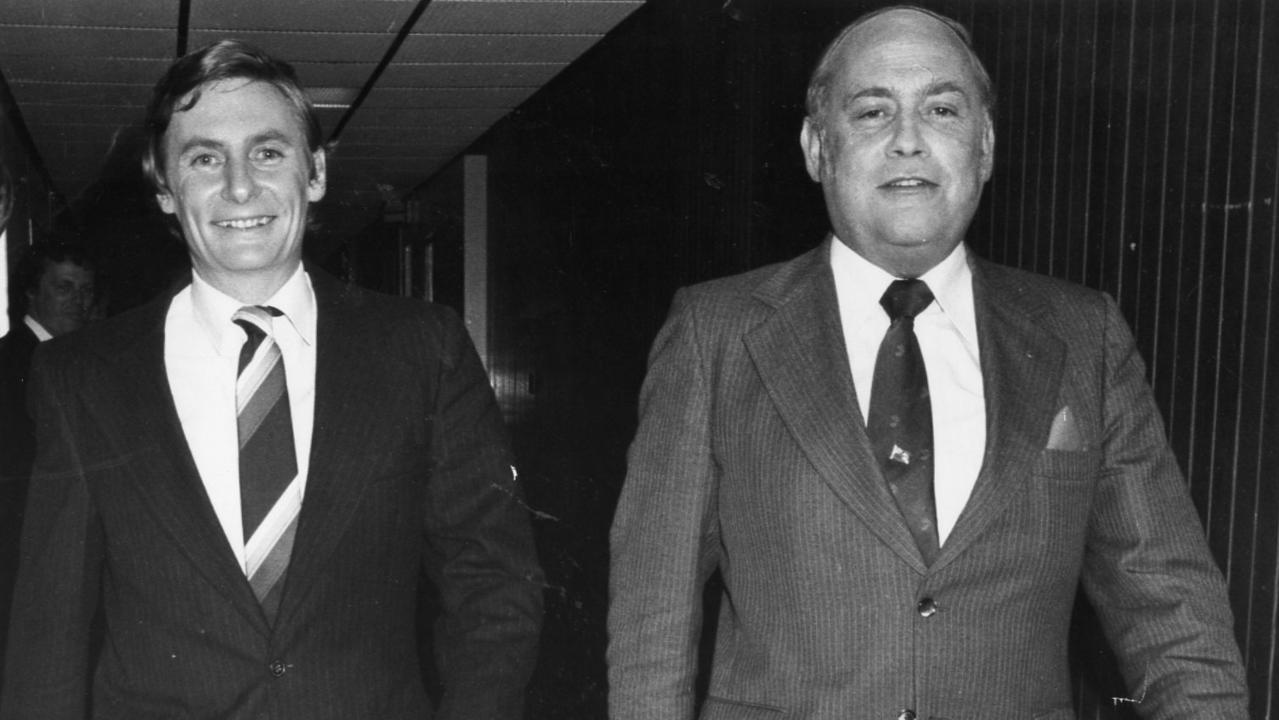
This should have bequeathed the Liberals government for years. Instead, Labor recaptured office in 2002, holding it for 16 years. The Liberals cruelled their 1990s government and new-century opposition with bitter factional infighting.
This festering wound has reopened spectacularly in the past week, as conservative Dan Cregan quit the Liberals last Friday and on Tuesday night was installed as Speaker in a Labor-crossbench coup.
Turning on the Liberals, Labor and the crossbench, including two former Liberals, backed a parliamentary inquiry into whether Deputy Premier Vickie Chapman had a conflict of interest and breached the ministerial code of conduct in rejecting an application to build a deepwater port on Kangaroo Island.
The five-person select committee is comprised of two Labor MPs, two Liberals and former Liberal conservative turned crossbencher Sam Duluk.
Given Mr Duluk’s factional antipathy towards the Moderate faction’s Ms Chapman, it is reasonable to predict that the partisan majority will deliver a damning report, which is due on November 18.
It also is not unreasonable to predict Labor engineering a parliamentary vote of no confidence in Ms Chapman, which could be expected to have a similar result to that which installed Mr Cregan as Speaker.
This poses a substantial risk for Ms Chapman and the government.
Forcing the Deputy Premier out of the ministry would be a crushing blow just months before next March’s election. This might explain why a return to Liberal ranks is said to be being countenanced for crossbencher Fraser Ellis, whose resignation in February over deception charges plunged the government into minority.
But that is a hypothetical future. The twin questions being posed after a tumultuous week centre on how this happened and what it means.
Mr Marshall is both a victim of circumstance and his own failure to quell instability within his ranks.
As one senior Liberal rhetorically asked of the conga line of conservatives who have fallen victim to scandals or formed factional subgroups: “So how is Marshall at fault for the fact that their great offerings to the party either can’t stay out of trouble or fall out with their own faction.”
But senior Liberals are asking searching questions of Mr Marshall. They question whether his office and the Liberal Party apparatuses is giving him challenging advice or just nodding at his wishes. They contrast his alleged Moderate faction takes all approach with that of his mentor, former prime minister John Howard, who favoured a “Broad Church” of conservatives and moderates within his Cabinet.
A strong theme is that Mr Marshall misses longtime confidante James Stevens as his chief-of-staff. Mr Stevens, now the Sturt MP, is respected as a strategist, organiser and, when necessary, political headkicker. Critics argue that Mr Marshall’s current chief of staff,
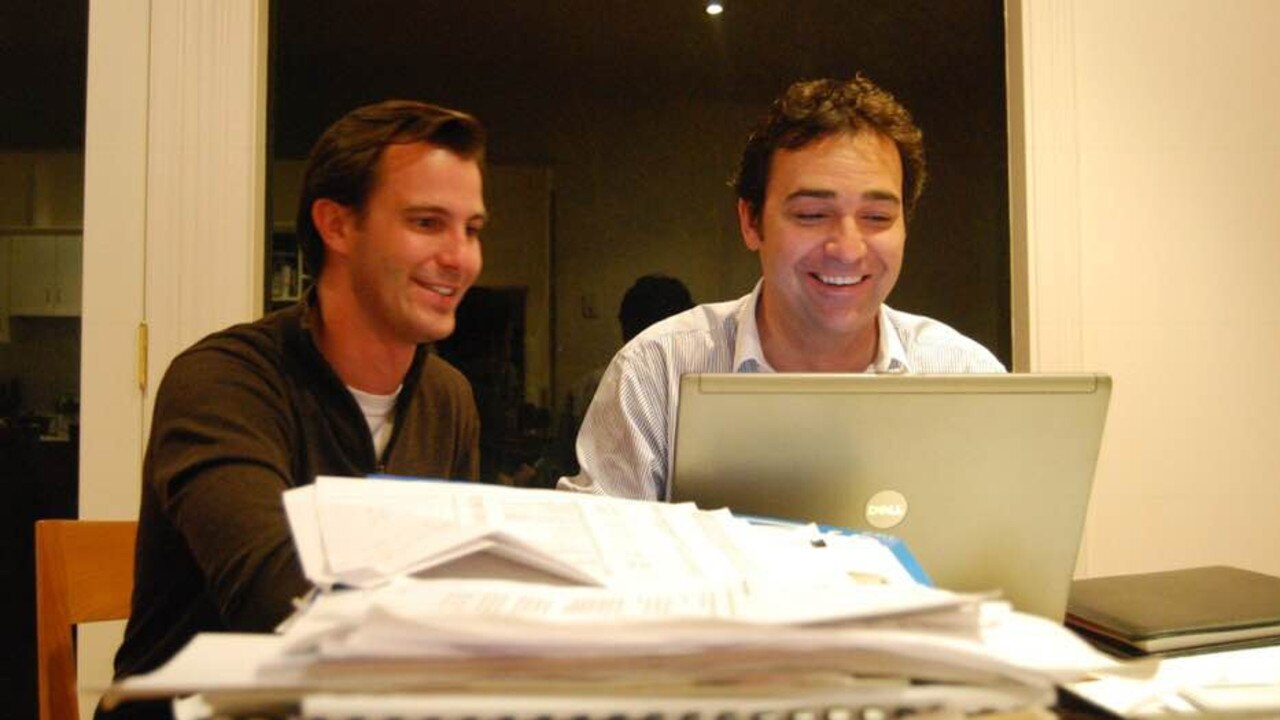
Courtney Morcombe, is better on policy than politics. This is a little unfair, given she cut her teeth almost 20 years ago as an adviser to the intensely political Christopher Pyne.
Opposition Leader Peter Malinauskas, meanwhile, has had events turn in his favour. After humiliating the Marshall government, he can look forward to flipping the switch to positivity by starting to -finally – release more major policy after the October 23 ALP convention.
Mr Marshall, bravely, is pressing ahead with reopening the state after Covid-19 vaccination rates reach 80 per cent. Despite the week’s blows, this remains his greatest test.
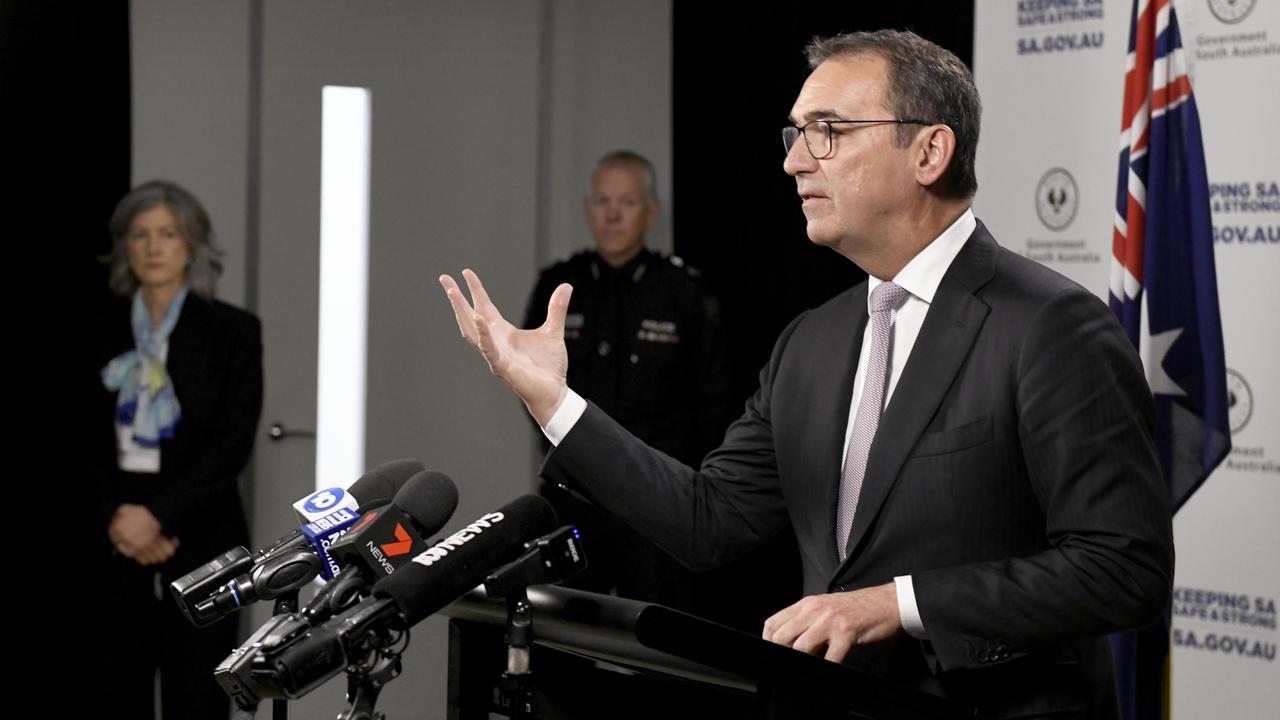
Covid is coming so where’s Marshall’s plan?
Friday, October 8: The conversation about the pandemic finally is starting to switch from eradicating Covid-19 within the South Australian community to the consequences of letting in the virus.
SA’s Covid chieftains in the past week, in particular, have started openly canvassing vague plans for opening up once double-dose vaccination rates reach 80 per cent of people aged 16 and over.
But the state lacks a detailed reopening plan, despite surging vaccination rates putting SA just weeks away from hitting the 80 per cent target on December 3.
By contrast, NSW revealed a revised reopening road map on Thursday after hitting 70 per cent inoculation the day before. This includes schools reopening from October 18, when the state is predicted to reach the 80 per cent threshold.
Sydney has been in lockdown since June 26 while SA has, thus far, had stay-at-home orders for just 10 days of the pandemic. NSW has had more than 67,000 Covid-19 cases, in total. SA has had 907. Victoria Friday set an unwanted new daily case record of 1838.
But there is a growing realisation that adhering to the national reopening plan will mean SA will let in Covid-19, particularly the Delta strain.
As SA’s most senior federal Liberal, Finance Minister Simon Birmingham, wrote in Wednesday’s Advertiser: “We cannot expect to succeed with elimination forever. That means we should be ready.”
While Senator Birmingham and Premier Steven Marshall have repeatedly and rightly emphasised the importance of vaccination, being ready for the Delta influx also should involve communicating a detailed preparation plan to the public.
Many people are keen to open up to see family and friends for Christmas but many also are understandably concerned about the consequences of opening up a state that has mostly been Covid-free.
But the specifics about the plan, if there is one, for the staged dismantling of SA’s borders have been quite vague. Mr Marshall has adhered to the national plan but this is a broadbrush document that is silent on many precise details.
There is some political risk for Mr Marshall if he is not seen by the public to be leading the state through this challenging and potentially traumatic stage of the pandemic.
Labor has put significant effort into prosecuting the charge that the state is being run by Police Commissioner Grant Stevens, as state co-ordinator during the Covid-19 emergency, and chief public health officer Professor Nicola Spurrier.
Mr Stevens bolstered this impression on Wednesday, when asked by ABC Radio’s David Bevan if the buck stopped with him on deciding whether restrictions were lifted in December. “Yeah, yeah,” he replied, having earlier said this would be “based on a lot of advice, not just from health but from other sectors as well”.
Mr Stevens’ authority stems from emergency laws during the pandemic. Any suggestion on his part of usurping the Premier would be unwitting, particularly given he has made it widely known that he can’t wait for when he’s not required to be state controller and can get back to running the police force.
Mr Marshall and other state premiers were given some indirect advice by Australian Industry Group chief executive Innes Willox – who was chief of staff from 2004 to 2006 to then-foreign affairs minister Alexander Downer – when responding to the revised NSW road map.
“The (NSW) Premier sent a strong message in his first Covid media conference that elected officials themselves need to own the decisions they take and take into account our economic and social wellbeing as well as the health advice,” said Mr Willox.
Little more than five months out from the next state election, the challenge for elected officials to own their decisions, based on expert advice, should also extend to Opposition Leader Peter Malinauskas.
Like Mr Marshall, he has repeatedly declared Labor follows health advice on the pandemic. But he will increasingly be asked, rightly, what actions he would take if he were premier, and be held to account for them.
Back in May, Mr Malinauskas declared he would establish a greenfields quarantine facility near Adelaide if he were premier, in a bid to stop Covid-19 leaks triggering catastrophic lockdowns.
But the state government challenged Mr Malinauskas to detail where he would build the facility, how much it would cost and how it would be operated.
Months later, Mr Marshall has had the better of that debate, thanks to SA’s successful development and trial of a home-based quarantine app and increased vaccination supplies.
A key reason for SA’s pandemic success has been public co-operation with authorities’ directions.
Plans evolve, but more direction about the weeks ahead would help maintain this vital public co-operation.
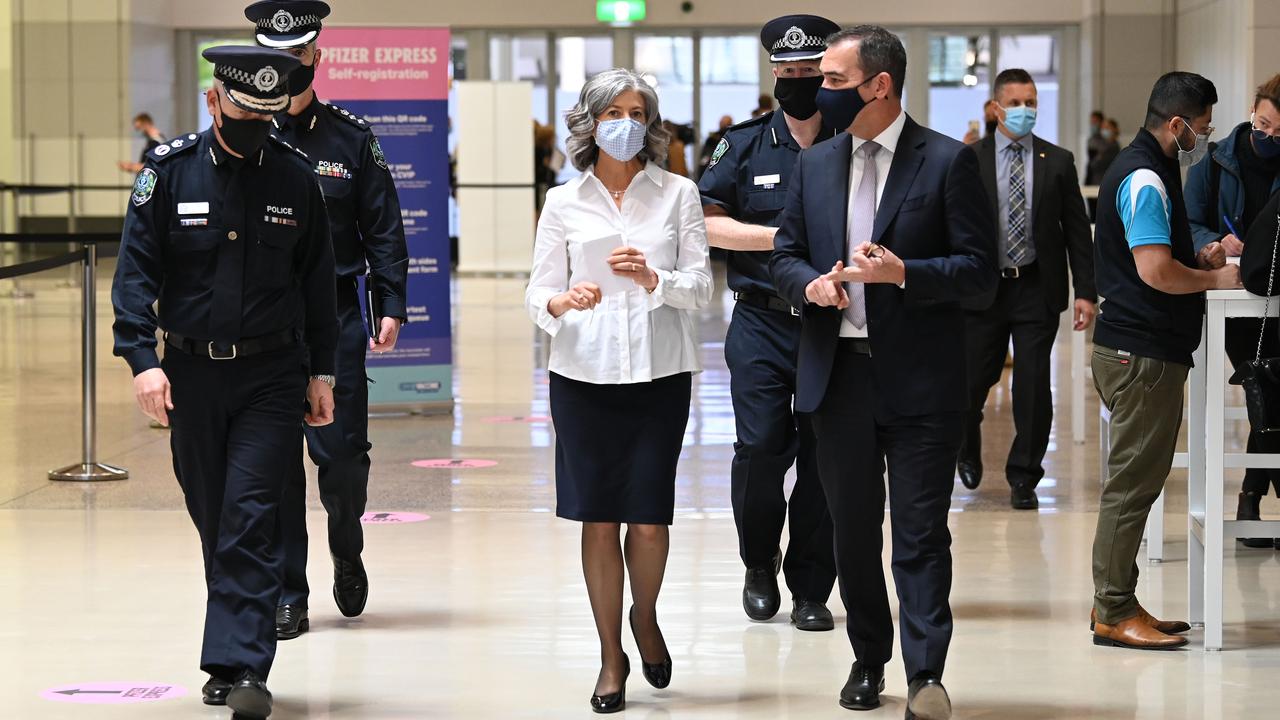
What to expect when SA’s Delta dam finally breaks
By Paul Starick
Friday, October 1: South Australia has been an oasis of almost-normal life for most of the Covid-19 pandemic.
Even as the Delta strain has ravaged NSW and Victoria in particular, SA has, thus far, managed to stave off a widely expected outbreak with tight border controls.
Apart from mask wearing on public transport, indoor public spaces and high schools, the most significant change to pre-pandemic life within SA is a 20-person limit on home gatherings.
But the rest of the world is opening up.
For example, the legendary rockers in a Covid-19 high-risk group, the 70-plus trio of remaining Rolling Stones, on Monday night started a rescheduled US tour in St Louis, Missouri, to a packed 50,000-seat stadium.
Prime Minister Scott Morrison on Friday announced international borders would start reopening in November, as double-dose Covid-19 vaccination rates begin hitting 80 per cent.
High-case states have laid out reopening plans, predicated upon allowing greater freedoms for the fully vaccinated. But Western Australia, Tasmania and Queensland – the latter on the precipice of a lockdown – have signalled they will not reopen to NSW and Victoria while Covid cases remain high.
This encapsulates the tension between opening up state borders once SA reaches 80 per cent double-dose vaccination for Covid-19 and continuing the defensive stance that has protected South Australians from the worst of the pandemic.
The next few weeks will be the biggest test yet of Premier Steven Marshall’s leadership. In football terms, SA has had a run of wins during the minor round. But the finals series will be the state letting in the Delta wave for the first time.
As the Sunday Mail revealed on September 26, authorities are planning to start a staged reopening of SA’s borders after mid-November, when modelling predicts the state will reach an 80 per cent Covid double-dose vaccination rate.
The first stage is expected to involve admitting fully vaccinated people from low-risk local government areas in NSW and Victoria.
SA’s borders cannot stay closed forever. South Australians eventually will be exposed to Covid-19. The key question is whether enough people can be fully vaccinated in time to prevent major outbreaks causing significant casualties and overloading the health system.
Once the 80 per cent threshold is reached, Doherty Institute modelling predicts community transmission will be less likely and cases will be less severe, thus reducing hospital admissions and deaths.
But the path forward is littered with political risk for Mr Marshall, given case numbers will rise in the weeks before next March’s state election. Helped by doctors’ and paramedics’ unions, the Labor opposition has gained public traction with its case that the health system is under extreme pressure and will not be ready for the Covid surge.
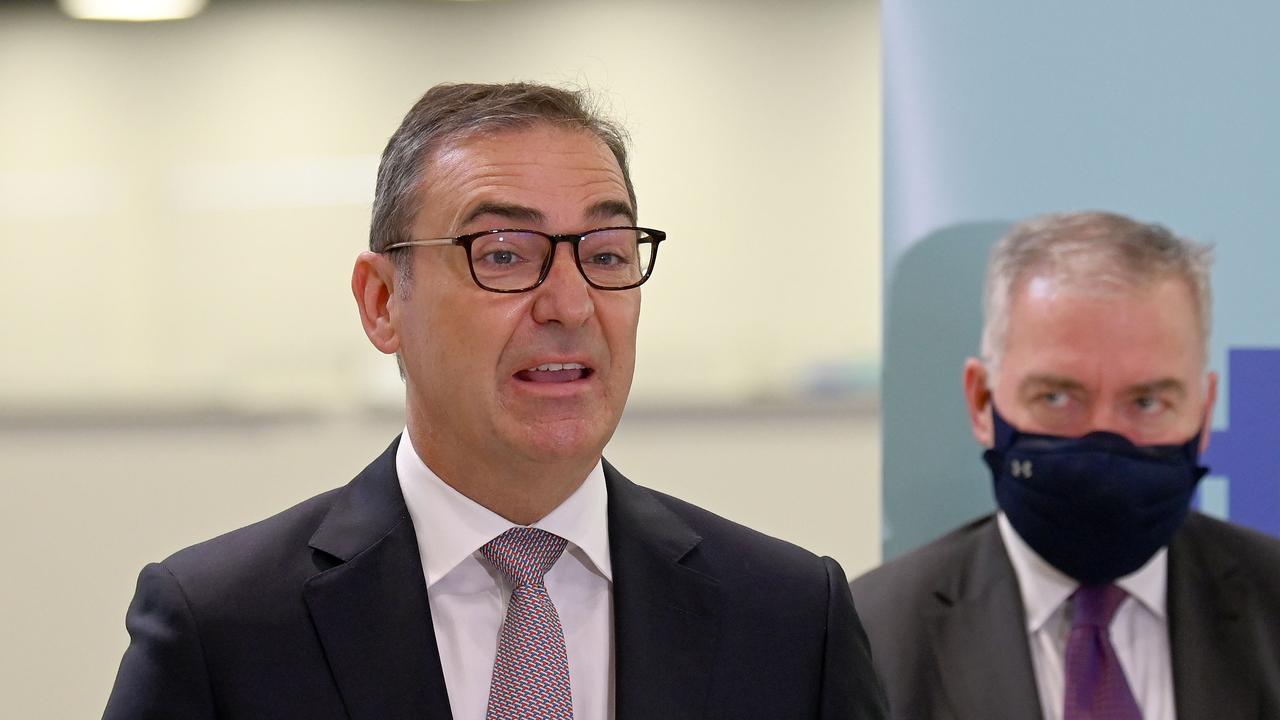
There is growing pressure for Mr Marshall to reveal a road map for reopening. This is an important part of the social contract he has successfully forged with the SA public during the pandemic, based on clear communication and mutual trust.
But it is clear there will not be a freedom day. Instead, borders will be gradually dismantled and some internal restrictions will remain. We will have to learn to live with Covid.
The four-step transition plan agreed by national cabinet on August 6, to which Mr Marshall has adhered, effectively spells out the pathway, even if it is relatively silent on state borders.
Once full vaccination levels reach 80 per cent, the plan’s objective is to “seek to minimise serious illness, hospitalisations and fatalities as a result of Covid-19 with baseline restrictions”. These include “highly targeted lockdowns only” and exempting “vaccinated residents from all domestic restrictions”.
Mr Marshall cannot rely solely on the transition committee, spearheaded by Police Commissioner Grant Stevens and chief public health officer Nicola Spurrier, to make the key decisions on opening up. Nor can he bank on more guidance from the national cabinet.
Ultimately, the Premier will have the final say, even if the decision is substantially based on expert advice.
Despite Labor’s mantra that Mr Stevens and Professor Spurrier are running the state, the buck clearly stops with Mr Marshall. He is the Premier.
Mr Stevens on Tuesday said SA Health was conducting modelling to assess the implications of border reopenings.
He committed to communicating this “as quickly as possible” so the public “might have an understanding of what 80 per cent really means for us”.
Given Covid-19 is increasingly a pandemic of the unvaccinated, there now is an even greater incentive to get the jab as soon as possible.
More Coverage
Originally published as Paul Starick: Turbulent times are ahead in parliament and Cregan’s re-election bid | The State









